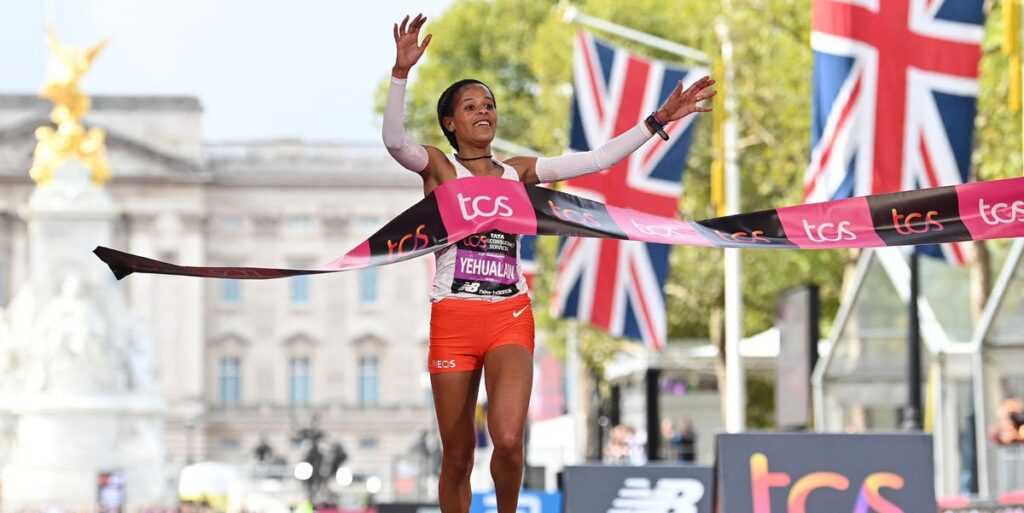The remarkable prowess of Ethiopian athletes in endurance running has been evident over the past six decades. With a legacy marked by groundbreaking achievements, such as Abebe Bikila winning Africa’s first Olympic gold barefoot in Rome 1960, Ethiopia has established itself as a powerhouse in this domain. This rich history continued with notable figures like Miruts Yifter, who claimed double gold medals in the 5000m and 10,000m in Moscow in 1980, and Haile Gebrselassie, whose dominance in the 10,000m events includes four World Championships and two Olympic golds. Recently, athletes like Selemon Barega further reinforced this tradition with a gold medal at the Tokyo Olympics, continuing Ethiopia’s success in endurance events.
The Rise of Female Ethiopian Runners
Women have also made significant strides in Ethiopian long-distance running. Athletes such as Fatuma Roba, who secured gold in the Atlanta Marathon in 1996, and Derartu Tulu, a two-time Olympic gold medalist in the 10,000m (Barcelona 1992 and Sydney 2000), have played a crucial role in this rich legacy. Tirunesh Dibaba showcased her talent by achieving the 5000m and 10,000m double at the Beijing Olympics in 2008. In the current landscape, Letesenbet Gidey holds three world records in the 5000m, 10,000m, and half marathon. Meanwhile, Yalemzerf Yehualaw stands as the reigning champion of the London Marathon, highlighting Ethiopia’s ongoing influence and success on the world stage.
Understanding Ethiopian Running Culture
A documentary titled Town of Runners provides insight into the unique running culture found in Ethiopian towns, particularly Bekoji — often referred to as ‘The fastest place on Earth.’ Michael Crawley, a researcher and anthropologist, explored the lives of Ethiopian athletes in his doctoral research and book Out of Thin Air. Through his research, Crawley identified patterns in training and culture that contribute to Ethiopia’s remarkable achievements in endurance running, gaining insights into the advantages that aspiring runners can implement.
Altitude Training for the Win
One of the distinct advantages of Ethiopian runners is their training at high altitudes. Addis Ababa, situated at 2,355 meters above sea level, enables athletes to train in an environment where oxygen levels are lower, significantly enhancing lung capacity and overall aerobic performance. Studies have indicated that these high-altitude training regimens not only benefit heart rates but also athletic endurance capabilities. The unique geographical advantage, combined with a rich tradition of running, sets Ethiopian athletes apart from their global counterparts.
Starting Young: A Cultural Norm
In Ethiopia, running begins in childhood. Many children unknowingly engage in training as they walk or run to school, a practice that shapes a robust foundation for future athletic success. Legends like Haile Gebrselassie recount their formative years running significant distances just to attend school. Children’s running races are a common sight, emphasizing that running is ingrained in the culture and regarded as a normal activity rather than a competitive sport from the outset.
The Importance of Discipline and Team Training
Discipline is a critical factor distinguishing Ethiopian athletes from their competitors. Renowned runners emphasize that serious commitment is required for excellence in running. Most Ethiopian athletes train as a team, with structured sessions funded by local businesses that provide support and camaraderie. This communal approach is vital for motivation, enabling runners to push each other during challenging training. Before races, they can be seen warming up and synchronizing their movements, reinforcing bonds that help them endure strenuous workouts and competitions.
Nutrition and Recovery Practices
Nutritional choices also play a crucial role in the athletes’ training regimens. Many Ethiopian runners consume traditional foods like injera, a gluten-free flatbread made from teff flour, and beso, a drink made from roasted barley flour, honey, and water. These foods not only provide necessary carbohydrates but also result in sustainable energy sources during training. Interestingly, it is common practice for Ethiopian runners to train without consuming fluids or food beforehand, focusing instead on hydration and nutrition post-training.
The legacy of endurance running in Ethiopia continues to inspire athletes worldwide. With events like the Great Ethiopian Run celebrating the love for running, the passion for this sport is palpable. As elite athletes like Selemon Barega and Letesenbet Gidey emerge, the world watches in anticipation of the next chapter in Ethiopian running history.
